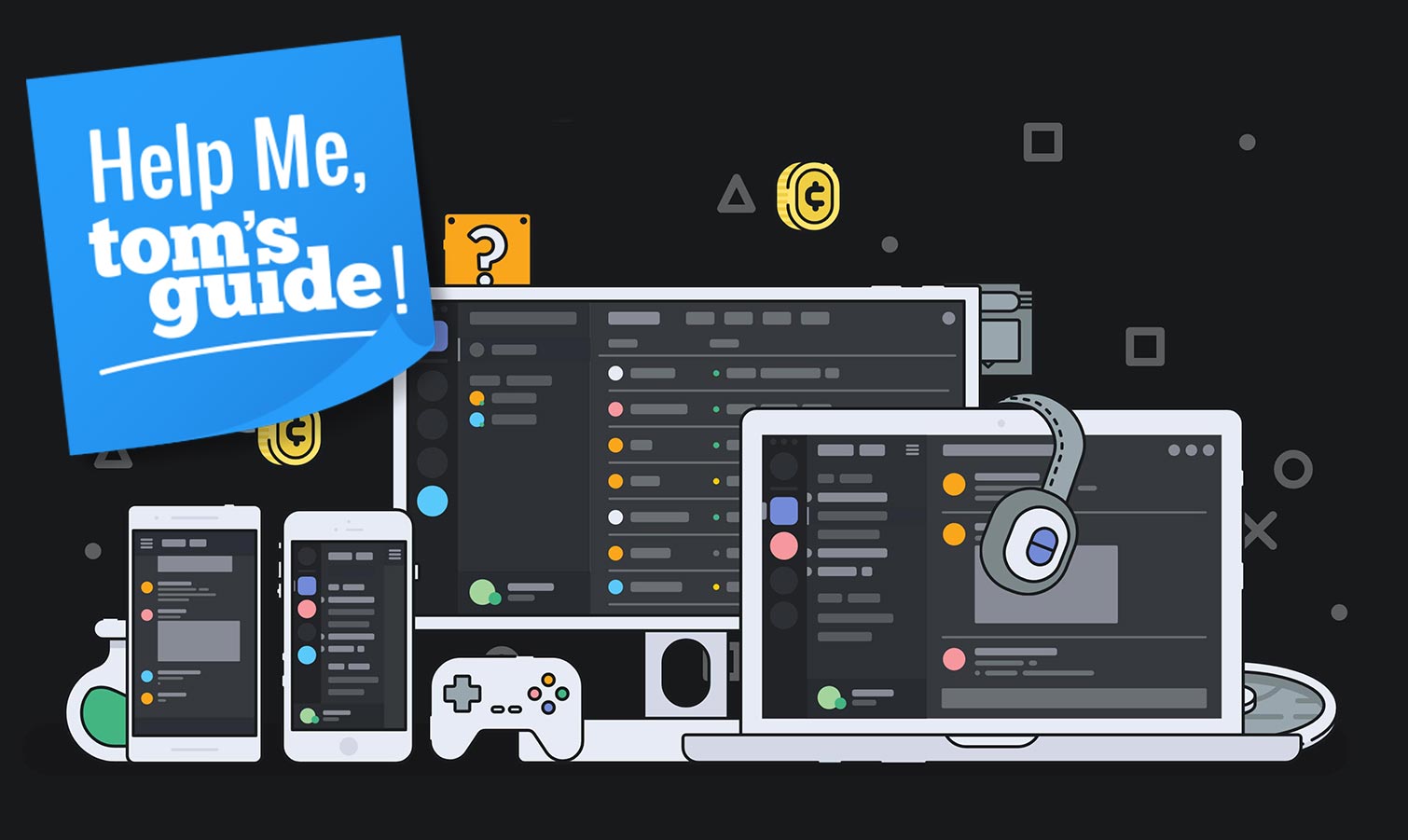Help Me, Tom's Guide: Is Discord Tracking Me?
Discord knows what games you're playing because that's how it's programmed to work. However, the app doesn't communicate this feature well.

The gaming chat program Discord has had a meteoric rise over the past few years. Neither as cumbersome as Skype nor as expensive as TeamSpeak, Discord is a streamlined, lightweight and attractive way to communicate with teammates in online games. And, unless you need its $5-per-month Nitro tier, it's absolutely free.

That doesn't mean the program is perfect, however. User Cowgoesmoo2 on the Tom's Guide forums finds Discord to be downright intrusive:
"How the heck does Discord know what programs I have open?" the subject line inquires. "I'm a security freak and things like this egregiously irritate me … Finding out Discord has permissions and the ability to see what I'm doing is incredibly unnerving."
What does Discord know?
The simple answer to Cowgoesmoo2's question is this: Discord knows what programs you have open because that's how it's programmed to work. However, the program does not do a good job of communicating this feature to users.
For those of you who haven't used Discord before, Cowgoesmoo2 is exactly right about the program's ability to discern other programs you're using. Whenever you load up a game, Discord will recognize it immediately, even if you haven't given it permission to access your Blizzard or Steam accounts. By default, it even shares what game you're playing with your Discord friends list. You can disable these notifications, but you can't stop the program from keeping a list of every game you play while it's open.
To be perfectly honest, I initially dismissed this complaint as a simple case of a user who neglected to read a program's Terms of Service. You know the Terms of Service — that Russian-novel-length wall of text that serves no purpose except getting between you and your brand-new program. But the truth of the matter is that the Terms of Service part often contains important information about the permissions and privileges a program requires in order to run.
There's only one problem: Discord doesn't actually show you its Terms of Service before it installs. In fact, the text containing the Terms of Service isn't in the program at all. If you search for it, Discord will link you to its website, where you can read both the Terms of Service and the Privacy Policy. Neither one is that long, so if you use the program extensively, you might consider taking 20 minutes or so to read through them.
What information do you share?
The Privacy Policy is fairly explicit about what kinds of information Discord collects:
"When you interact with us through the Services, we receive and store certain information such as an IP address, device ID, and your activities within the Services. We may store such information or such information may be included in databases owned and maintained by affiliates, agents or service providers.
"[Information about user demographics] may be compiled and analyzed on an aggregate basis, and we may share this aggregate data with our affiliates, agents and business partners. We may also disclose aggregated user statistics in order to describe our services to current and prospective business partners, and to other third parties for other lawful purposes.
MORE: The Best Headsets for Immersive Gaming
"As we develop our business, we might sell or buy businesses or assets. In the event of a corporate sale, merger, reorganization, bankruptcy, dissolution or similar event, your information may be part of the transferred assets."
Interestingly, Discord does not specify whether it collects data based on the games you play, explaining only that "[i]nformation we collect may include but not be limited to username, email address, and any messages, images, transient VOIP data … or other content you send via the chat feature."
Discord's defense
Does this mean that Discord is gathering up your personal information, ready to sell it to advertisers to stay afloat, like Facebook, Twitter or Google? Not necessarily. I'm not the first person to notice that the Discord privacy policy seems vague on the topic of collecting, aggregating and potentially selling data. A user called KatsuoRyuu on Reddit pointed out the same thing about a year ago.
KatsuoRyuu received a response from Shuu37, a graphic designer who works for Discord:
"We don't sell any of your information," Shuu37 wrote. "In terms of money, we are investor backed. We also have some monetization strategies in the works." Discord Nitro launched just around the time of their exchange, and Discord still plans to sell some cosmetic upgrades to keep its servers up and running.
From my point of view, if Shuu37's statement is in any way false or misleading, the company would be shooting itself in the foot by putting such a thing in writing, especially in a semiofficial capacity. Of course, all bets are off if Discord sells or merges its assets (see above), but for the moment, if Discord is gathering information on the games you play, the company is keeping that data to itself.
Discordant notes
"Out of discord comes the fairest harmony," said Heraclitus of Ephesus, an early Greek philosopher. And perhaps he had a point. Discord is hardly the first program to offer a convenient service in exchange for a few inconvenient permissions.
Yes, Discord can track the games you play, whether or not you want it to. No, Discord doesn't give you fair warning about this feature when you first install the program. But you can keep your game habits hidden from your friends, and if Discord is collecting information about the titles you're playing, it's not doing anything untoward with that information — for now.
In short, there's no real solution in this situation, but there may not be a real problem, either. Like a lot of security issues, Discord's permissions are just something with which users should familiarize themselves, then come to their own conclusions.
Credit: Discord
Get instant access to breaking news, the hottest reviews, great deals and helpful tips.
Marshall Honorof was a senior editor for Tom's Guide, overseeing the site's coverage of gaming hardware and software. He comes from a science writing background, having studied paleomammalogy, biological anthropology, and the history of science and technology. After hours, you can find him practicing taekwondo or doing deep dives on classic sci-fi.
-
Robp59 Uninstall this program now. The company is obviously collecting user data for a future sell-off to third-parties.Reply

